Hemorrhoids: Complete Guide to Symptoms, Treatment, and Prevention
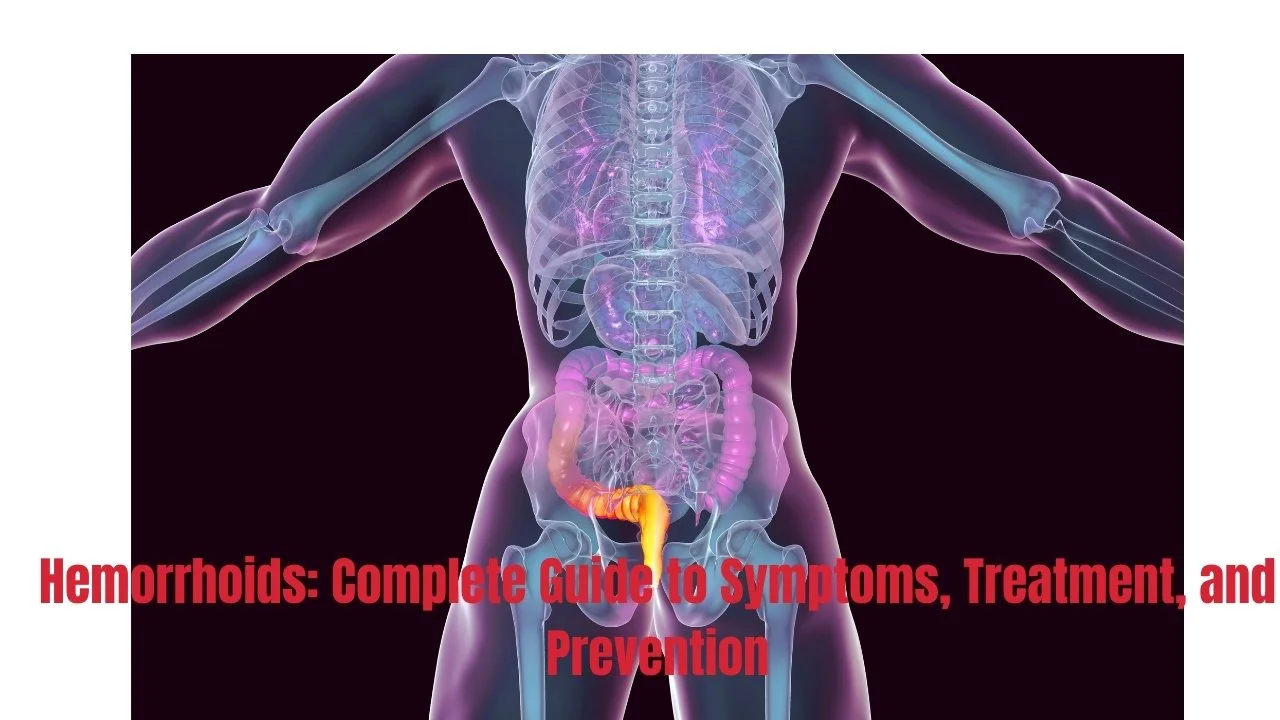
One of the most prevalent health issues in America is hemorrhoid. These are swollen blood vessels in your rectum or anus which results in pain, itching and bleeding of your anus. Over 50 percent of Americans aged above 50 years experience hemorrhoids at some time.
The good news? The majority of symptoms of hemorrhoid can be improved by household remedies. The hemorrhoids education determines how you can control this condition and avoid relapse.
What Are Hemorrhoids? Understanding This Common Condition
Hemorrhoids Definition and Overview
Hemorrhoids, also known as piles are the swollen veins within your rectum/ outside the anus. No one is born without hemorrhoids. Only when they swell and increase in size they become a problem.
Approximately 1 out of every 20 Americans has hemorrhoids which irritate them. Anyone can be diagnosed with this condition regardless of age and background. As a person ages, hemorrhoid increases. Symptoms of hemorrhoid occur in more than half of individuals above 50 years. If you need info related Cavities: Complete Guide to Understanding, Preventing, and Treating Tooth Decay.
Hemorrhoids are experienced when veins in the rectum and anus increase in pressure. This pressure causes the blood vessels to enlarge. Swollen veins become irritated and lead to pain, bleeding and pain.
Types of Hemorrhoids Explained
There are four main types of hemorrhoids. Each type has different symptoms and locations.
Internal hemorrhoids develop within your rectum. Internal hemorrhoids can hardly be seen or felt. They hardly become painful unless they are turned into prolapsed hemorrhoids. Internal hemorrhoid can result in bleeding but it is not painful.
The external hemorrhoids occur under the skin on the anus. External hemorrhoids can be seen or usually felt. They tend to make it itchy, painful and aching. External hemorrhoids are also sometimes bleeding.
Prolapsed hemorrhoids occur when internal hemorrhoids bulge outside anus. It is possible to push a prolapsed hemorrhoid back inside gently. These hemorrhoids can bleed and cause pain.
When blood collects in an external hemorrhoid, a thrombosed hemorrhoid will occur. This type usually is painful and makes a purple or blue lump outside your anus. The clot in blood only affects your anal area and won’t go to any other body part.
Hemorrhoids Symptoms: How to Recognize the Signs
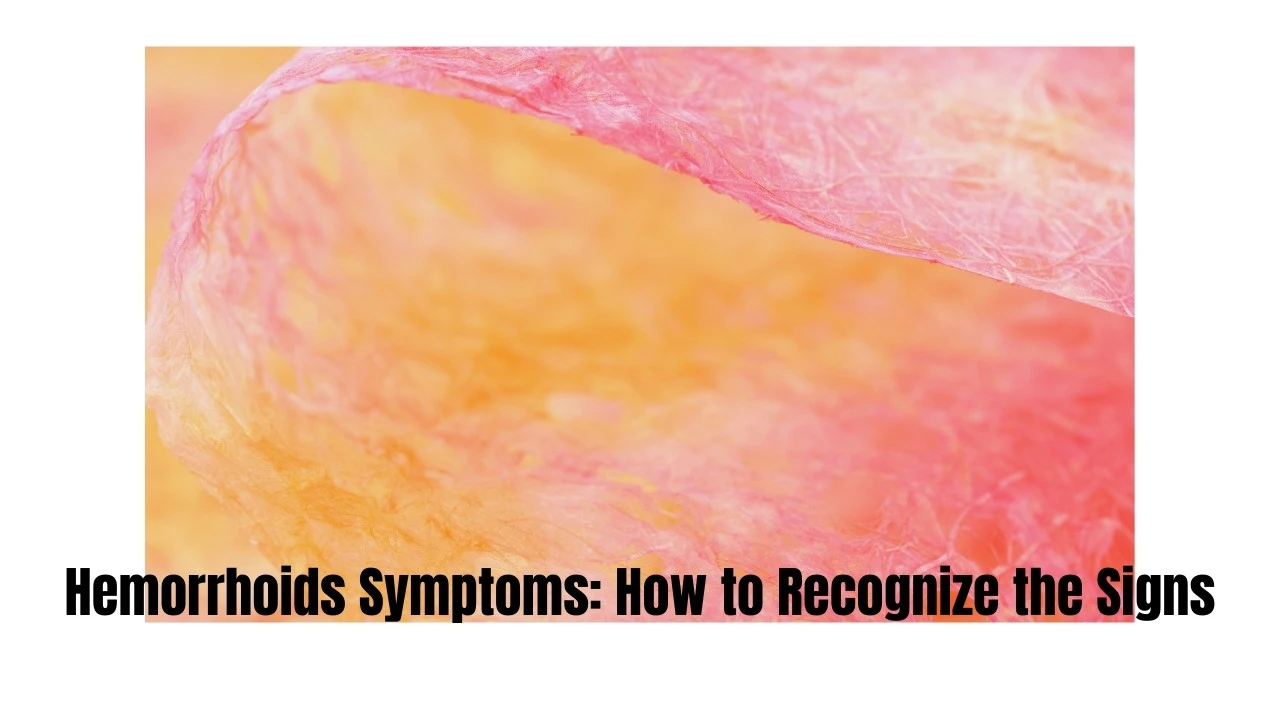
Internal Hemorrhoids Symptoms
Most people do not notice their internal hemorrhoid because it lives inside your rectum. Most individuals are unaware they have internal hemorrhoids until signs develop.
What are the main signs of internal hemorrhoids? People usually notice bright red blood on the toilet paper, in the stool, or in the toilet bowl. Swollen veins can tear easily when having a bowel movement and causes this rectal bleeding.
Normally, internal hemorrhoids don’t hurt unless they get prolapsed. It may feel painful or pressure when an internal hemorrhoid pops out of your anus. A person may be able to gentle push a prolapsed hemorrhoid back in.
External Hemorrhoids Symptoms
The formation of external hemorrhoids is outside your anus that’s why you can easily notice them. These symptoms are more obvious than internal hemorrhoids.
External hemorrhoids cause several uncomfortable symptoms. Itchiness or irritation around your anus is very common. You might experience painful or tender hard lumps near your anus.
The pain in your anus becomes worse when you sit down. When you wipe after a poop, it may also happen with external hemorrhoids. The bleeding is usually bright red blood.
Swelling and inflammation around anus is noticed by some. The area may feel warm or look red. External hemorrhoids make it painful to sit, walk, or exercise.
Thrombosed Hemorrhoids Warning Signs
Thrombosed hemorrhoids cause the most severe symptoms. Blood collects in an external hemorrhoid and forms a clot.
Thrombosed hemorrhoids create sudden, intense pain. The pain is much worse than regular hemorrhoids. You could also notice a solid lump outside of your anus that’s blue, black, or purple.
What makes thrombosed hemorrhoids different? The pain starts quickly and feels very sharp. The lump feels hard when you touch it. Thrombosed hemorrhoids cause more pain and inflammation than others.
If you suspect that you have a thrombosed hemorrhoid, see your doctor right away. Prompt treatment can help reduce pain and avoid complications.
What Causes Hemorrhoids? Understanding Risk Factors
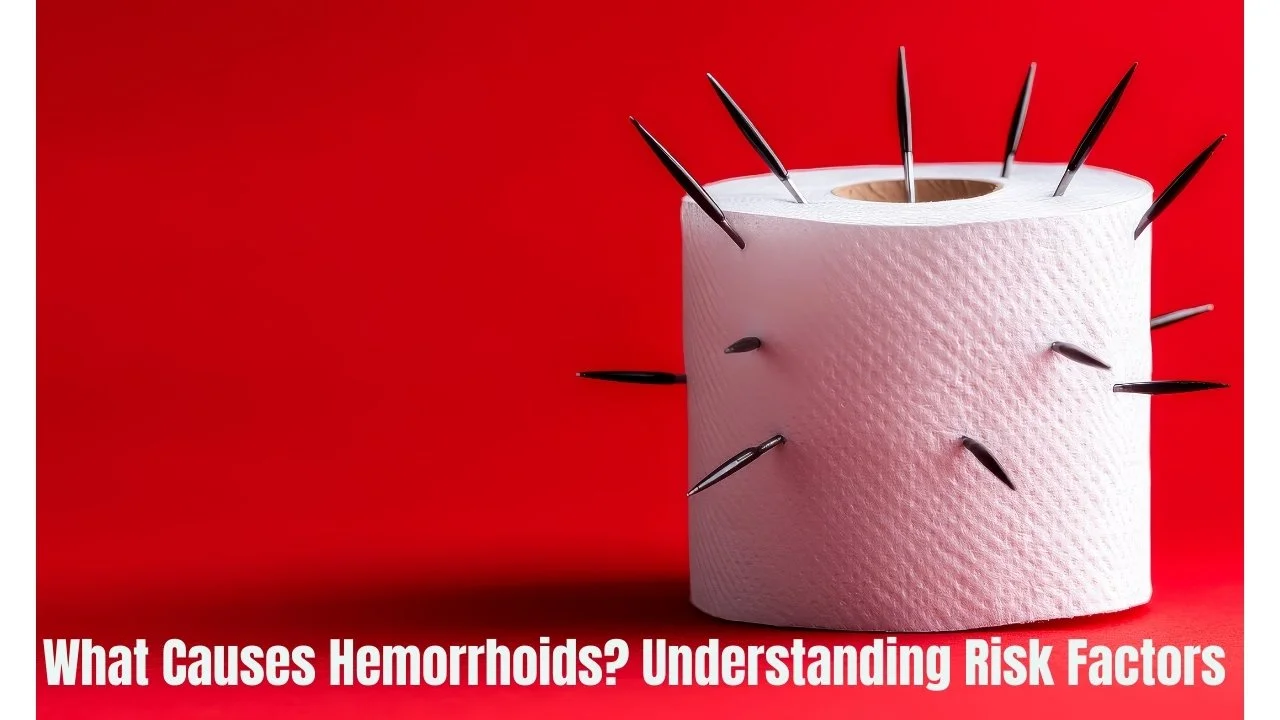
Primary Hemorrhoids Causes
When excess pressure builds up on the veins in your anus and rectum, hemorrhoids occur. Blood vessels become swollen and inflamed due to pressure.
The most common cause of hemorrhoids is straining during bowel movement. If you put too much pressure on your anus and rectum to produce a bowel movement, this will put excess strain on the veins that are located there. This pressure can make hemorrhoids swell up.
Hemorrhoids are also caused by chronic constipation and chronic diarrhea. The constipation causes you to strain harder when bowel movements are taking place. Diarrhea leaves inflammation and irritation in your rectum and anus.
Prolonged sitting on toilet is also a cause of pressure on veins. There are a lot of individuals who spend excesses of time in the toilet reading or on the phone. This puts hemorrhoids under permanent pressure and exacerbates them.
Lifestyle and Health Risk Factors
There are a number of lifestyle choices that expose you to the risk of having hemorrhoids.
One of the greatest risk factors is low-fiber diet. In case you fail to consume adequate high-fiber food, your stool hardens thus becoming hard to pass. This causes constipation and straining of bowel motion.
Hemorrhoids are usually brought about by pregnancy. The swelling baby strains the blood vessels of your pelvis. Veins also tend to swell because of hormone variations during pregnancy. Hemorrhoids occur widely amongst pregnant women during their third trimester.
Being overweight and obese places an undue strain on the rectum and anus. When a person is overweight it raises the risk of hemorrhoids developing. Weight loss may be used to prevent and treat hemorrhoids.
The straining and heavy lifting can cause hemorrhoids. You may strain when breathing when lifting heavy objects. This puts strain on your abdomen, and may cause bleeding piles to swell.
Some individuals also might develop hemorrhoids as a result of anal intercourse. This exercise may strain anal tissue and irritate.
The other risk factor that is beyond your control is age. Hemorrhoids increase with age. Supportive tissues which hold the veins of your rectum and anus become weaker with age.
Hemorrhoids Diagnosis: What to Expect from Your Doctor
Physical Examination Process
What is the diagnosis of hemorrhoids among doctors? A physical examination will be the beginning of your healthcare provider. They will examine your anal area to examine external hemorrhoids or prolaped hemorrhoids.
External hemorrhoids can be easily observed by sight by your doctor. They will examine the presence of swelling, inflammation, or hard lumps around anus. The doctor will also enquire about your symptoms such as pain, bleeding, and itchiness.
A digital rectal examination is usually required as a check on internal hemorrhoids. Your provider puts on lubricant and gloves. They put their finger into your rectum and caress the swollen veins.
These tests are likely to be uncomfortable but do not have to be excruciating. The physical examination can take only a few minutes at the office of your doctor.
Advanced Diagnostic Procedures
Your doctor may sometimes require further more detailed tests in diagnosing hemorrhoids.
Anoscopy is a test performed with the assistance of a small tube equipped with light that examined the inside of your rectum and anus. This exam allows your physician to have a clear view of internal hemorrhoids. Anoscopy is approximately 10-15 minutes and it occurs in the office of the doctor.
Sigmoidoscopy is an examination of the low section of your colon and rectum with a light tube which has a camera inside it. It is available in two forms, namely, flexible and rigid sigmoidoscopy.
Flexible sigmoidoscopy involves a small, flexible tube which is more user-friendly on the part of the patient. Rigid sigmoidoscopy utilizes a straight tube, although the images are very clear.
These tests are used to eliminate other gastrointestinal types of conditions that may lead to rectal bleeding. There are serious conditions that have symptoms like hemorrhoids. Your doctor would like to ensure that you have the correct diagnosis.
The majority of the diagnostic tests are outpatient tests. You go home the same day. There are certain examinations that can be performed with light sedation to make you feel more at ease.
Hemorrhoids Treatment: From Home Remedies to Medical Procedures
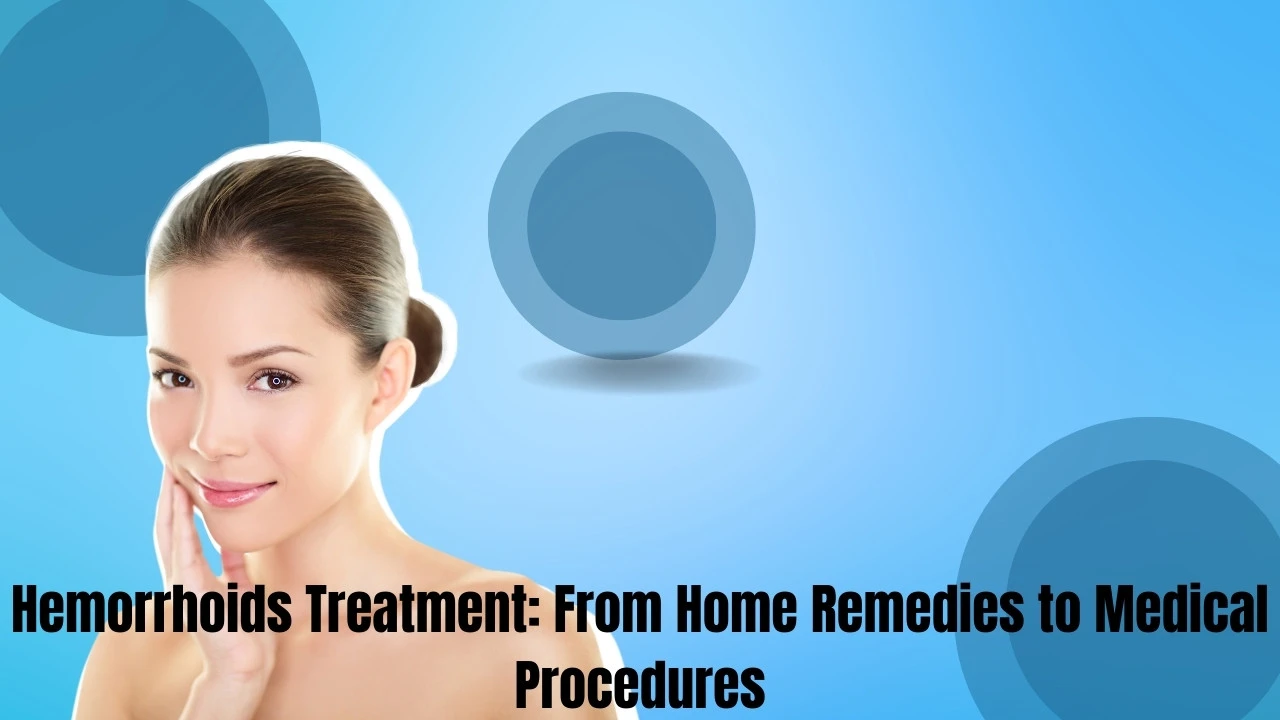
At-Home Hemorrhoids Treatment Options
Several hemorrhoid symptoms can be treated using simple home-based treatment.
Increase the amount of fiber you consume to soften up and loosen your stool. Adults require 25-38 grams of fiber at any given time of the day. Whole grains, vegetables and fruits are high-fiber foods. Fiber supplements are also something you may take.
Consumption of more water contributes towards preventing constipation and also maintaining stool soft. Increase the amount of water consumed each day. The amount of water that is required by most people is 8 glasses per day.
The hemorrhoid symptoms are relieved through Sitz bath treatments. Take a warm bath of 10-20 out of a few times a day. The hot water decreases swelling and pain. Your standard bathtub may be used or a special sitz bath bowl may be purchased.
Hemorrhoid symptoms can be controlled by the use of over-the-counter drugs. Hydrocortisone cream is used to cut inflammation and itching. Lidocaine ointment is used to anesthetize the area to pain. Witch hazel products are used to treat bleeding and irritation.
The use of NSAIDs such as ibuprofen are useful in pain and swelling. These are nonsteroidal anti-inflammatory medications that decrease the level of inflammation in hemorrhoids.
Wash with soft soap and water following bowel movements. Better than the dry toilet paper are flushable wet wipes or moist tissue. Wipe the area with a towel rather than a rag. This will avoid additional irritation.
In constipation laxatives can help. Take only in the way prescribed by your physician. Excessive use of laxatives will lead to diarrhea and exacerbation of hemorrhoids.
Medical Hemorrhoids Treatment Procedures
When home treatments do not work, your doctor may recommend medical procedures.
A standard cure of internal hemorrhoids is rubber band ligation. Your physician ties a small rubber band to the lower hemorrhoid. This blocks the blood circulation to the swollen vein. The hemorrhoid drops and withers away in a week.
Sclerotherapy is done by injecting a chemical solution in the hemorrhoid tissue. This makes the swollen vein to shrink and disappear. Sclerotherapy is effective with small internal hemorrhoids.
Electrocoagulation involves the use of electric current to prevent flow of blood to bleeding. Infrared coagulation involves the use of heat in a small probe to kill the tissue of the hemorrhoid. Both of these are performed in the office of the doctor.
These therapies are normally mildly uncomfortable, but not painful. The majority of the individuals are able to resume their usual routines in few days.
Surgical Hemorrhoids Treatment Options
Large hemorrhoids which do not respond to other treatments may require surgery.
Surgery involving complete removal of hemorrhoids is called Hemorrhoidectomy. This is a successful operation on large external hemorrhoids or internal hemorrhoids that are prolapsed. Hemorrhoidectomy is the one that has a long lasting effect yet has delayed period of recovery.
Hemorrhoid stapling is a procedure that is used to treat both internal hemorrhoids and involves the removal of tissue and drawing the hemorrhoid back into the rectum. This is less painful of a procedure than hemorrhoidectomy.
Transanal hemorrhoidal dearterization (THD) is a more recent surgery. The surgeon wraps up the blood vessels supplying internal hemorrhoids and removes them with the help of sutures.
Depending on the surgery, it takes between 1-3 weeks to recover. Your physician will provide you with certain post-surgery instructions.
Hemorrhoids Prevention: Lifestyle Changes That Work
Dietary Prevention Strategies
What foods help prevent hemorrhoids? The best way to prevent hemorrhoids is to keep your stools soft so they are easy to pass and don’t require straining.
High-fiber diet keeps your system healthy and helps prevent constipation. Great sources of fiber are fruits such as apples, pears and berries. Broccoli, carrots and leafy greens are also good sources of fiber.
Whole grains such as oatmeal, brown rice and whole wheat bread help keep stool soft. Switch white bread and pasta for whole grain types.
Fiber supplements can be useful if it’s hard for you to get enough fiber through food. Begin gradually and slowly build as to not cause gas and bloating.
Drink more water to lubricate the fact that fiber is supposed to work. Water helps stool stay soft and pass easily through the body. 8 glasses of water, minimum
Bathroom Habits for Hemorrhoids Prevention
The right bathroom etiquettes are crucial in avoiding hemorrhoids.
Don’t sit too long on toilet. His time should be limited to a few minutes. Long Sitting Prolonged sitting on toilet subjects unneeded pressure on veins in rectum and anus.
Wait before you have to go to the bathroom. Use the bathroom when it is necessary. Waiting may increase hardness of stool and cause straining.
Do not strain when passing bowel. When you have difficulty in passing stool, change position or take a break. The primary cause of hemorrhoids is straining in bowel movement.
Use proper wiping technique. Pat using soft toilet paper or flushable wet wipe. Do not rub hard, this may be irritating.
You might find it helpful to have a footstool to put up on the toilet to raise your knees. This pose has the ability to ease bowel movements and minimize straining.
Lifestyle Modifications
Keep active and exercise to prevent hemorrhoids. Exercise is a good way to avoid constipation because your digestive system will keep moving. Good ones are walking, swimming and yoga.
Maintain a healthy weight. Hemorrhoids are burdened by obesity. Excess weight loss can be used to prevent and cure hemorrhoids.
Acquire the right methods of handling heavy things. Do not use your back, but your legs. Do not hold your breath during lifting, this elevates the pressure of the abdomen.
Sit breaks are taken in case you have a desk job. Take breaks and have a walk after every hour. The condition of hemorrhoid may also be caused by prolonged sitting.
Manage stress levels. The chronic stress may have an influence on your digestive system and may result in constipation. Attempt some relaxation practices such as deep breathing or meditation.
Living With Hemorrhoids: When to See a Healthcare Provider
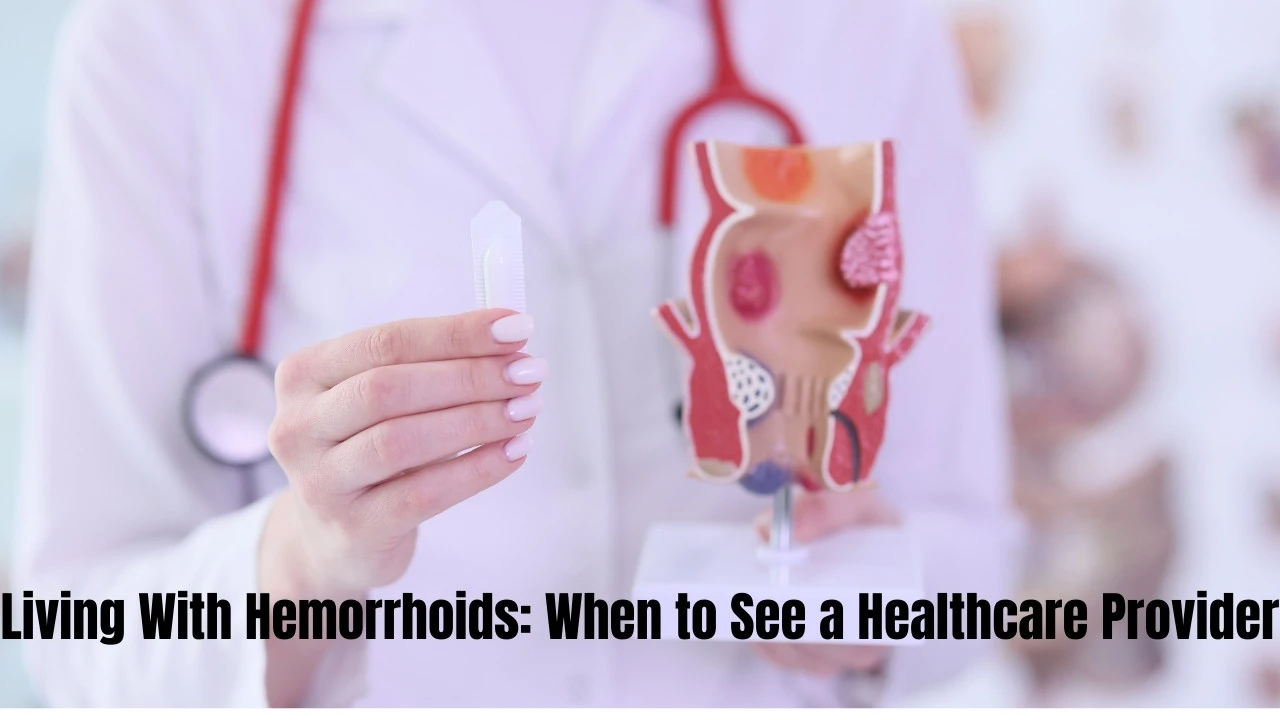
Warning Signs Requiring Medical Attention
What time of the day should you visit the doctor over hemorrhoids? With home treatment, most symptoms of hemorrhoids get better in less than a week. There are however certain symptoms that demand urgent medical care.
Emergency Treatment Emergency treatment is needed when there is intense bleeding of the rectum. Non-stop heavy bleeding and bleeding accompanied by abdominal pain require urgent examination.
Infection may manifest itself in fever and chills with hemorrhoid symptoms. This is a combination that needs immediate medical care.
Only painful severe pain which does not respond to home remedies should be considered. Hemorrhoids may easily turn thrombosed and cause severe pain that requires medical care.
The chronic constipation or diarrhea that has persisted longer than a few days must be dealt with. These abnormal bowel movements have the potential to aggravate hemorrhoids, and might also signal other issues.
Symptoms of nausea and vomiting and hemorrhoid are abnormal. These symptoms are possible signs of a more severe disease.
Hemorrhoids Complications to Watch For
Although hemorrhoids do not usually pose a serious complication, there is a likelihood of complications.
Chronic bleeding may cause anemia. In the case of persistent rectal bleeding, your physician needs to examine your blood levels. Anemia produces fatigue, weakness and pale skin.
External hemorrhoid causes thrombosed hemorrhoids through blood clots. These bring about excruciating pain and swelling. Clots of blood in hemorrhoids do not pass on to other parts of the body.
The chances of getting infected are low but they may occur when hemorrhoids are severely irritated or damaged. Symptoms are fever, pain accumulation, and pus.
Hemorrhoids can result in skin tags. They are small skin flaps that are not normally a problem although can be removed should they be problematic.
Strangulated hemorrhoids the muscles within the anus disrupt the blood flow to a protruded hemorrhoid. This is a severe complication, which necessitates urgent surgery.
Hemorrhoids vs. Other Conditions: Understanding the Differences
Hemorrhoids vs. Anal Fissures
Hemorrhoids and anal fissures have similar symptoms but they are not the same.
Small tears in the lining of your anus are known as anal fissures. Hemorrhoids are veins that are swollen. They both may lead to bleeding, pain and itching.
What causes the difference? Passing of hard stool or straining is the common cause of anal fissure. Hemorrhoids are a result of vein pressure and swelling.
Anal fissure pain is also described as sharp and cutting. The hemorrhoid pain is normally aching or throbbing. Fissures of the anus can be painful during and after the bowel movements.
A physical examination can make the difference to your doctor. Anal fissures are little slits, and hemorrhoids are masses with swelling.
Both conditions are treated in a similar manner. Both issues are addressed by high-fiber foods, increased water consumption and not straining.
When Hemorrhoids Symptoms Indicate Other Issues
There are some types of gastrointestinal disorders that have similar symptoms to hemorrhoids. Such conditions may be severe and should be diagnosed.
There are numerous sources of rectal bleeding, as opposed to hemorrhoids. Bleeding can be caused by colon polyps, inflammatory bowel disease, and colon cancer.
Constant pain in the abdomen with bloody stools can be a sign of inflammatory diseases or other problems of the gastrointestinal tract. These are symptoms that require medical examination.
Alterations in bowel patterns over a period of several weeks should be monitored. The persistent diarrhea or constipation may be an indicator of the other digestive issues.
What is the importance of professional diagnosis? Certain conditions that are life-threatening have symptoms that resemble hemorrhoids. Serious diseases are better treated through early diagnoses and treatment.
You should never think that you have nothing but hemorrhoid stool without consulting the doctor, particularly when you are over 50 years old or your relatives have colon issues.
Frequently Asked Questions About Hemorrhoids
Common Hemorrhoids Concerns
What happened, why did I get hemorrhoids? Hemorrhoids are caused by pressure in your anus and rectum veins. Straining during a bowel movement, chronic constipation, pregnancy and longer sitting on a toilet are some of the common causes.
How long do hemorrhoids last? With proper care small hemorrhoids usually fade in a course of one week. Severe hemorrhoids can take a number of weeks to heal. Severe ones may require medical intervention.
Do hemorrhoids resolve themselves? Yes, a good deal of hemorrhoids are treated by diet and home care. Healthy foodstuffs with high fiber content, increased intake of water and avoidance of straining cause hemorrhoids to shrink.
Are hemorrhoids life-threatening or not? Hemorrhoid is not often harmful. Majority of the cases are not that painful and cannot endanger your health. Such complications as severe bleeding or infection are rare.
Which is the best treatment of hemorrhoids that I have? The therapy will rely on your symptoms and type of hemorrhoid. Begin with some home treatments such as fiber supplements, sitz baths, and OTC creams. **. Go to a doctor when the symptoms fail to improve.
Are hemorrhoids necessarily recurrent? Unless you change the habits that led to the causes of hemorrhoids, they may come back. After prevention measures such as consuming foods with high fibers and not straining, recurrence is possible.
Is there a way that I can avoid hemorrhoids? Though you can not be sure of the prevention, healthy habits can considerably lower your risk. The best ways to prevent this are regular exercise, proper dieting and good bathroom habits.
Expert Hemorrhoids Care and Professional Treatment
Choosing the Right Healthcare Provider
What is the kind of doctor I need to see and hemorrhoids? Begin with your primary care physician to have them initially assessed and treated. They are able to diagnose the majority of hemorrhoids and prescribe proper treatment.
In more complicated cases, your primary care provider can make a referral. Gastroenterologists are the specialists who deal in the disorders of the digestive system such as hemorrhoids. Colorectal surgeons deal with surgeries of extreme hemorrhoids.
Preparation: What do I do to prepare a hemorrhoids consultation? Record your symptoms and when you began to have them and what improves or aggravates the symptoms. Name medications that you take and treatments that you have tried.
Write down a list of questions to your doctor. There is nothing to be ashamed of in talking of hemorrhoids. Medical professionals address this health issue on a regular basis and are interested in making you feel better.
Questions to Ask Your Doctor About Hemorrhoids
What are the treatment options of my hemorrhoids? Inquire about home remedies and medical procedures. Know the advantages and disadvantages of all options.
What should I do to avoid the recurrence of hemorrhoids? Receive dedicated instructions on diet, exercise and bathroom routines. Inquire about fiber supplements, and other preventative measures.
When do I come back to have some follow-up care? Understand when and what symptoms you need to see a doctor about.
Which lifestyle changes are of the greatest importance in my case? Every person is different. Specialized guidance can be provided by your doctor depending on your condition and risk factors.
Are there any kinds of activities that I should avoid? Inquire about work, exercise and daily activities that may aggravate your hemorrhoids.
How long will recovery take? Get realistic opinions regarding recovery time of your treatment plan.
Taking Control of Your Hemorrhoids Health
Hemorrhoids are a widely spread disease that impacts millions of Americans. Although not comfortable, hemorrhoids are highly curable even though they are embarrassing. Simple home treatment and changes in lifestyle are enough to relieve most people. If you need more interested info like that visit quick guider.
The strategy of hemorrhoid management is to know its causes and prevent it. The best prevention measures are eating a lot of fiber-rich foods, taking lots of water, not straining, and physical activity.
Shyness should not prevent you to get help when you need it. Treatment of hemorrhoids is done daily by care providers and they have numerous successful therapies. Early treatment eliminates complications, makes you feel better sooner.
It is important to remember that in the majority of cases hemorrhoids are not a serious threat. This condition can be dealt with successfully through proper care and prevention. Make your own digestive health and do not go through it silently.
Contact a healthcare professional in case of persistent symptoms and lack of improvement in the home treatment. Having professional medical care makes sure that you receive correct diagnosis and most effective treatment of your situation.